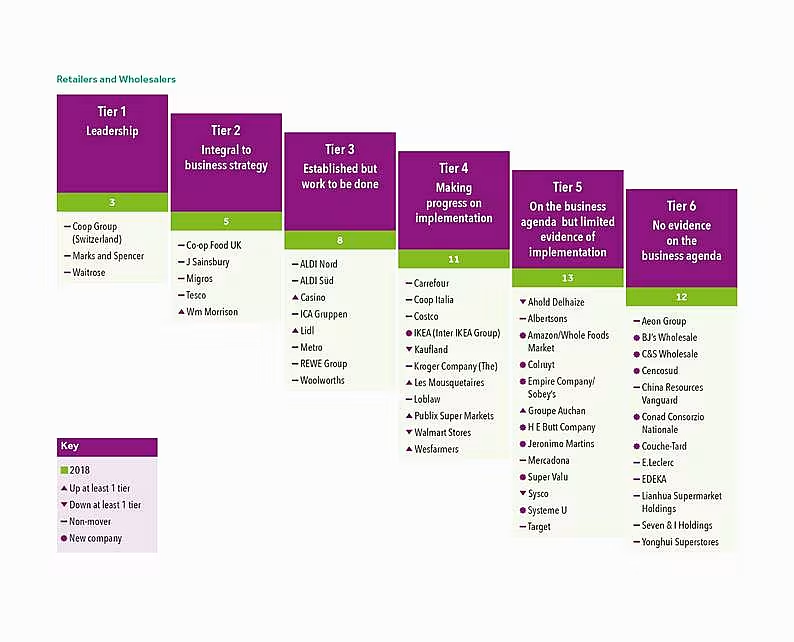Business Benchmark on Farm Animal Welfare (BBFAW) has identified British retailers Marks & Spencer and Waitrose and food manufacturers Cranswick and Noble Foods as global leaders in implementing measures for the welfare of farm animals.
The seventh edition of BBFAW's annual report also found Switzerland's Co-op Group as one of the top performers when it comes to animal welfare programmes.
The BBFAW is backed by Compassion in World Farming and World Animal Protection.
'Business Value'
An expert advisor to the BBFAW, Dr Rory Sullivan, said, "The benchmark exposes the gap between policies and performance, highlighting those companies whose governance processes work effectively and those that are not fit for purpose in a world where farm animal welfare is an increasingly important driver of business value."
According to the 2018 report, UK companies scored a higher overall average of 61%, while North America obtained 28% and Europe, excluding the UK, managed 34%.
Philip Lymbery, CEO of Compassion in World Farming, commented, "This position, however, could be undermined by Brexit, if existing welfare legislation is not retained in the UK.
"Conversely, Brexit could be an opportunity for the UK to get even further ahead if the government were to make its own animal welfare legislation, for example, by introducing a ban on caged egg production, as is the case in Germany, and banning live exports for fattening and slaughter," added Lymbery.
The Process
The study assessed around 150 companies, out of which 52 belonged to the retail and wholesale sector.
It included 50 of the world's largest food retailers, with annual revenues of over $10 billion (€8.79 billion).
Thirteen new retailers were added in this year's study, including Amazon/Whole Foods Market, IKEA (Inter IKEA Group), SuperValu and Système U.
Findings
In the retailer and wholesaler segment, seven companies moved up one tier, while four fell by one tier and 28 were non-movers.

Among the retailers, Morrisons, Lidl, Casino moved up one tier, while Tesco, Sainsbury’s and Co-op Food UK were unmoved.
Kaufland and Walmart slipped one tier due to increased weightage on reporting of performance related to animal welfare measures.
Nicky Amos, executive director of BBFAW, explained, “Company practice continues to show consistent year-on-year improvement. For example, 53% of companies now have an explicit board or senior management oversight of farm animal welfare, and 71% have published formal improvement objectives for farm animal welfare.
"However, these encouraging findings on management processes are not matched by performance. For example, while just over half of companies report on the proportion of animals that are free from close confinement, only one in four companies covered by the benchmark provides any information on the proportion of animals that are stunned prior to slaughter, and only one in five companies reports on live animal transport times."
Long-Term Change Initiative
The benchmark is a long-term change initiative that is showing signs of progress, the BBFAW reported in its statement.
Out of the 55 food companies that have continuously been a part of the study since 2012, 17 (31%) have moved up one tier, 20 (36%) have moved up two tiers, and eight (15%) have moved up three tiers.
Philip Lymbery, the aforementioned CEO at Compassion in World Farming, added, "The benchmark and the investors supporting it have played a key role in keeping farm animal welfare firmly on the corporate agenda.
"As this year’s report shows, we need to ensure that this attention delivers real and concrete benefits for animals farmed for food," Lymbery added.
© 2019 European Supermarket Magazine – your source for the latest retail news. Article by Dayeeta Das. Click subscribe to sign up to ESM: European Supermarket Magazine.














